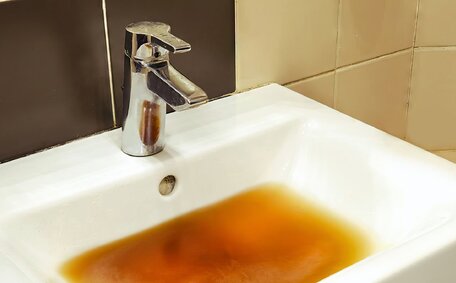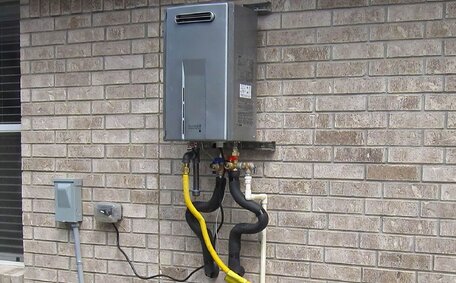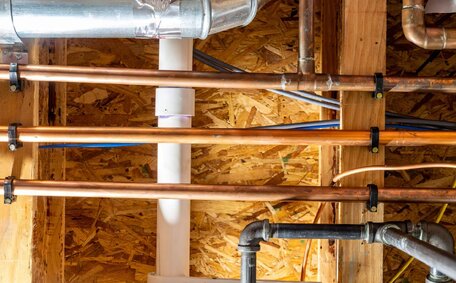Introduction to Blocked Drains
Blocked drains are a widespread and troublesome issue for both households and commercial establishments. When drains become clogged with debris, grease, or other materials, water drainage is disrupted, which can lead to messy overflow, foul odours, and backed up pipes.
Our team at Vaucluse Plumbing has extensive experience in diagnosing and resolving blocked drains in the Vaucluse, Sydney area. Our trained technicians are equipped to properly diagnose drains how unblock them in all types of drainage systems, including sinks, showers, bathtubs, and toilets. We use state-of-the-art drain cleaning methods and equipment to clear even the most stubborn clogs.
Left unaddressed, a blocked drain can pose health risks and cause property damage. The following sections provide helpful information for identifying the common cause of clogged drains, DIY unclogging solutions, as well as the best way to recognise when to call a pro like Vaucluse Plumbing.
While understanding how to tackle blocked drains is essential, professional drain cleaning services may be necessary at times.
Common Causes of Blocked Drains
Several common culprits contribute to blocked drains. Food scraps and waste washed down sink in kitchen areas are among the most frequent causes of blocked drains due to residual fats, oils, and grease adhering to the pipes over time. Excess hair and soap scum, one most common combination from baths and sinks, can clump together and build up, leading to blocked drains. Furthermore, items such as wet wipes, other sanitary items, cotton buds, and dental floss are among the most common causes of clogging and should never be flushed down your toilet, as they do not break down and can become lodged.
Excessive toilet paper use can lead to blockages as it builds up in the pipes. Infiltration and cracking of older, compromised drainage pipes by tree roots represent issues that can cause blocked drains in your drainage system and significantly impact its performance. Small toys, bottle caps, coins, and other foreign items that might clog your drains, obstructing water flow.
Blocked drains can also result from pipe corrosion, collapses, and the unseen build-up of excess dirt. This buildup of grime, waste, and debris causes restrictions that can difficult effective drainage and result in backed-up, clogged pipes.
Grease, Fat, and Oil Buildup
Grease, oils, and fats washed down drain from your kitchen sink are major contributors to blockages in your pipes. Thick, viscous substances like grease and oil coursing through drains pipes can cause buildup, gathering mass as time passes.
Over time, even small amounts of cooking fat can accumulate and severely restrict water flow.
Grease lining drain pipes can trap food particles and soap scum, leading to blockages. This process can eventually result in severe clogs. Signs of grease-related obstruction include gurgling sounds, very slow draining water, foul sewage odours, and pooling dirty water in sinks or tubs.
Indeed, some preventive steps involve meticulously removing grease fat, oils, and other residues from plates and cookware before washing. For extensive grease and fat oil clogs in the kitchen sink, piping may need to be disassembled and manually cleaned, or even replaced if corrosion has allowed damage to parts placed down the drain, although, well some cases might just require thorough flushing. The technicians at Vaucluse Plumbing understand the causes blocked drains how to effectively clear out grease, restore proper water flow, and prevent repeat blockages with their arsenal of tools and methods.
However, even with careful kitchen habits, some buildup over time is inevitable. Use of drain cleaning solutions or devices like a snake may have limited success if they’re employed too late in such circumstances.
Hair and Soap Accumulation
The combination of hair and soap residue is another common blocked drain cause in your bath. Over time, large clumps of entangled wet hair mixed with sticky substances like soap scum severely impede water flow.
As you use sink and shower drains, the hair that washes down tends to catch on existing gunk buildup from soap scum and sticks together to form obstructions.
Using drain guards is a prime strategy to avert hair and soap from slipping into your plumbing.
Installing drain guards or screens prevents strands of hair from being able to make their way into your pipes in the first place. Additionally, regularly using enzymatic drain cleaners can help prevent drains blocked by breaking up soap scum and dissolving the greasy hair buildup before it has the chance to clog your drains completely.
For existing hair and soap obstructions, a stiff drain snake can be used effectively. Such drain clearing methods are often successful at breaking up and clearing out the mass of gunk within your drain pipes. However, extensive buildup accumulated over several years may require our professional hydro jetting service to thoroughly scour the drain interiors and restore proper water flow.
Tree Roots
Tree roots are among the many reasons clogged drains occur, especially for outside drain blockages. As trees grow, their roots can infiltrate pipes in search of water and nutrients. Once they locate cracks or joints in drainage pipes, roots may penetrate these openings and venture inside, obstructing water flow.
But when comes to a standstill, extensively established root masses filling pipes will completely halt drainage.
Backed-up water, foul odours, and flooding are clear signs it’s time to call professional drain cleaning services.
To help prevent invasive tree roots from causing blocked pipes in your home, it’s wise to avoid planting trees too close to your underground drainage infrastructure.
Seeking regular professional inspections and maintenance can ensure your plumbing does not succumb to potential root issues early before they escalate into full blockages. For existing obstructions in the pipes your home where roots can intrude, high-pressure hydro jetting combined with mechanical cutting tools is often required to extract the offending roots and restore drainage function.
Broken Pipes and Poor Installation
Obstructions can also result from faulty installation or damage to your property’s drainage pipes. Water flow can be disrupted by various issues such as cracks, misaligned joints, breaks, and blockages from construction debris. Sewer pipes succumbing to punctures, being crushed, or deteriorating due their composition and age faltering over time are also susceptible to obstructing.
Scheduling a professional inspection of your drainage system every 3–5 years can help detect potential issues early. Experienced plumbers can spot improper slope angles, low spots, root intrusions, and other red flags. Timely maintenance helps avoid more serious issues such as burst pipes and blockages down the road.
To take care of all your residence’s piping problems that lead to clogged drains, sections that were improperly installed must be mended or replaced. Sections with invasive root growth may also need to be removed and re-installed. Our team at Vaucluse Plumbing, as your professional plumber, has the latest tools and methods for excavating, clearing, and restoring flow in damaged drains when facing severe blockages.
Foreign Objects and Improper Disposal
Flushing or funneling unsuitable items down toilets and channels is an avoidable activity known to cause major blockages. Avoid flushing non-degradable materials like sanitary products, cleaning wipes, and dental floss, as they can cause blockages. Over time, the accumulation of such improperly disposed of items washed down your drains significantly hinders water drainage.
Household education on proper waste disposal is essential to prevent blockages. Items such as wet wipes, even those labelled 'flushable’, should be disposed of in the garbage.
The only items that should be flushed are human waste and toilet paper, designed specifically to break down. The only items that should be flushed are human waste and toilet paper, designed specifically to break down.
For existing drainage line blockages caused by inappropriate flushing and disposal, mechanical removal is typically required. Our team at Vaucluse Plumbing have the specialised equipment to remove blockage, clear embedded debris, and restore proper water flow.
Identifying Signs of a Blocked Drain
There are several clear signs, with residue from hard water being one of the main causes, indicating a blocked drain in your home. Slow-draining water is one of the most common red flags. Sinks, bathtubs, or toilets that sluggishly release water, with meagre flow indicative of a clogged drain, denote that pipes might be jammed.
Gurgling noises from drains are also a giveaway that something is obstructing water flow, with air bubbles and dirty water surfacing, leading you to ask 'why my drains are noisy,' often indicating blockages. Additionally, if you’re wondering 'why my sink or floor drains emit an unexpected bad smell’, it’s often because of debris buildup or sewage backing up due to pipe restrictions.
The presence of water pooling around floor drains or overflowing toilets can indicate a severe blockage. Outdoor issues like wet spots or collapsed areas along exterior walls can indicate a main sewer line clog.
Catching these blocked drain symptoms early provides the best chance to clear obstructions through DIY methods before major plumbing repairs are needed.
If simple unclogging attempts fail to fix the blocked drain your home has and you continue experiencing any signs above, the time has come to call our team at Vaucluse Plumbing. Our skilled technicians will accurately determine the drain blockage via visual camera inspection and deploy sophisticated techniques to do unblock the problematic debris or roots!
DIY Solutions for Minor Blockages
For most common blocked drain clogs, there are some handy DIY methods to assess how to unblock them before calling a professional to handle a plumbing problem. Pouring boiling water down the drain can help dissolve grease buildup, encouraging it to make its way down and dislodge debris. Combining baking soda and vinegar creates a chemical reaction capable of breaking apart obstructions that clog up the substances that go into your drain.
Choose to use plunger to suction out accumulated gunk lodged in pipes. You can use hand-crank augers threaded down pipes effectively for grabbing onto blockages like hair or diminutive objects. However, if you’re trying to figure out a solution to similar issues in the Gold Coast, be cautious not to abrade the pipes with the coil. Repeated plunging for several minutes may dislodge clogs.
While useful for small obstructions, DIY approaches have limited effectiveness if drain issues stem from extensive blockages, broken pipes, or tree root infiltrations. Excessive force or caustic chemicals could worsen damage. If water remains backed up after several attempts – a clear sign drains get clogged – discontinuing DIY efforts and calling professionals like Vaucluse Plumbing is advisable to safely restore drainage.
When to Call a Professional
Though minor blockages can often be cleared through DIY efforts, there are scenarios where contacting professional help is the best option. Ongoing issues that remain unresolved following repeated attempts at plunging or employing drain cleaners signal a serious underground plumbing challenge – drains how fix this conundrum demand professional inspection.
When multiple drains or fixtures in a property are clogged simultaneously, this signifies an extensive obstruction or collapsed main line. Attempting to forcefully clear multiple backups risks worsening any structural damages.
If you suspect broken, damaged or improperly installed pipes are the root cause based on signs like flooding, wet walls, sinkholes, persistent foul odours or rust coloured water, this requires professional equipment and skills.
For effective diagnosis and strategic clearing of severe or complex residential and commercial drain blockages in Vaucluse, Sydney, call Vaucluse Plumbing on 1300 349 338. Our licenced technicians can quickly respond and are available 24/7 to get to the bottom of blocked drains in your drain system using state-of-the-art methods and cutting-edge tools!
Preventing Future Blocked Drains
There are several most effective preventive measures to help avoid blocked drains occurring in the first place. This saves on future plumbing expenses and inconvenient water drainage issues.
In the kitchen, refrain from pouring fats, oils or grease down the sink. Thoroughly scrape plates and pans first before washing to limit buildup in pipes over time. In the kitchen, refrain from pouring fats, oils or grease down the sink. Avoid forcing food waste down the garbage disposal which might clog the drain your kitchen depends on.
In bathrooms, installing drain covers and hair catchers prevents hair, coffee grounds, and soap scum accumulation. Additionally, restrict flushing inappropriate items like wipes, cotton swabs or hygiene products, which can block in pipes. Take care to only flush toilet paper and human waste.
For outdoor drainage, we recommend steering clear of planting trees near underground sewer lines. Seek professional drainage inspections every 3 years to assess pipe condition and clear minor blockages that could be clogging your pipes, before they escalate.
Contact Vaucluse Plumbing to professionally clean drains on an annual basis. Our fast-acting enzymes dissolve grease and hair buildup keeping pipes clear. With proper precautions and steps to maintain your drainage system, costly plumbing blockages can be avoided.






